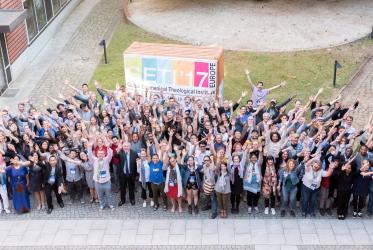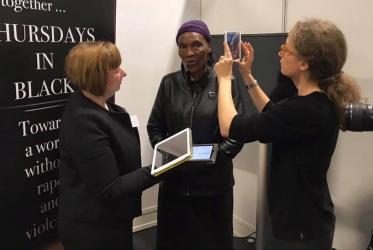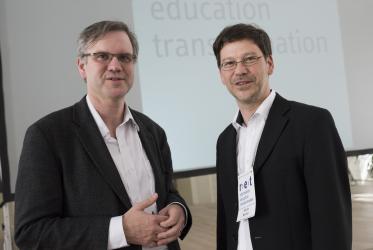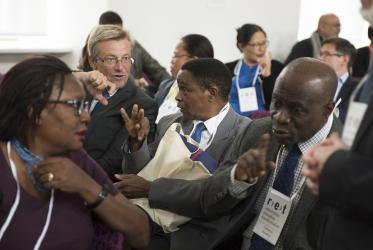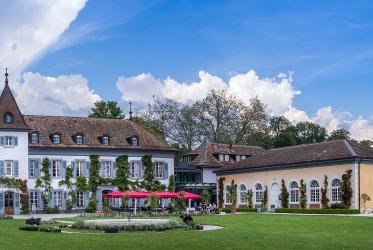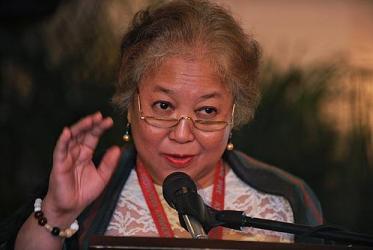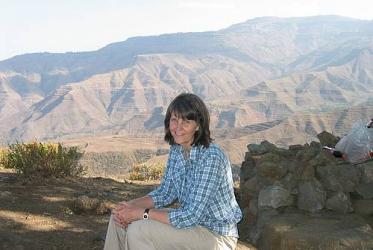Displaying 41 - 60 of 62
10 August 2017
“We are to pass on the mantle”
31 May 2017
WCC hosts discussion on religious radicalisation
13 December 2016
Bossey students combine academics with global relationships
21 October 2015
Theological education initiative begins in Seoul
28 October 2013
Global survey documents trends in theological education
19 September 2013
European theologians discuss Christian witness
01 November 2012
Churches on the move amidst changing landscapes
26 March 2012
CWME invokes new understanding of mission and evangelism
22 March 2012
Building AIDS-competent churches in Southern Africa
23 June 2011
WCC fills six key staff leadership positions
18 April 2007

